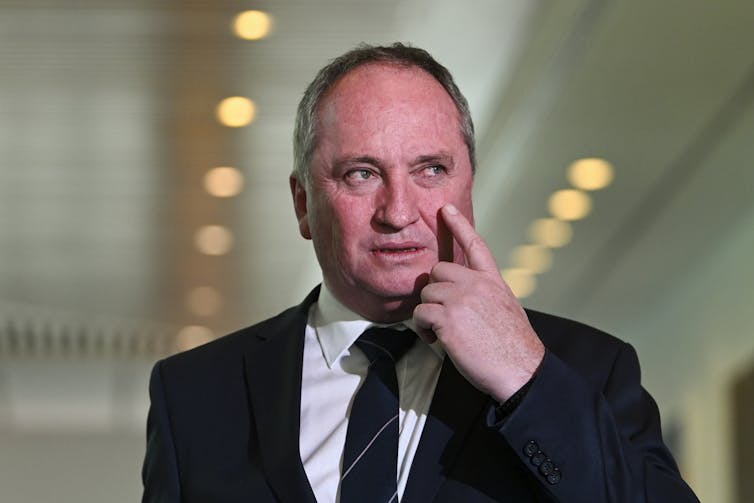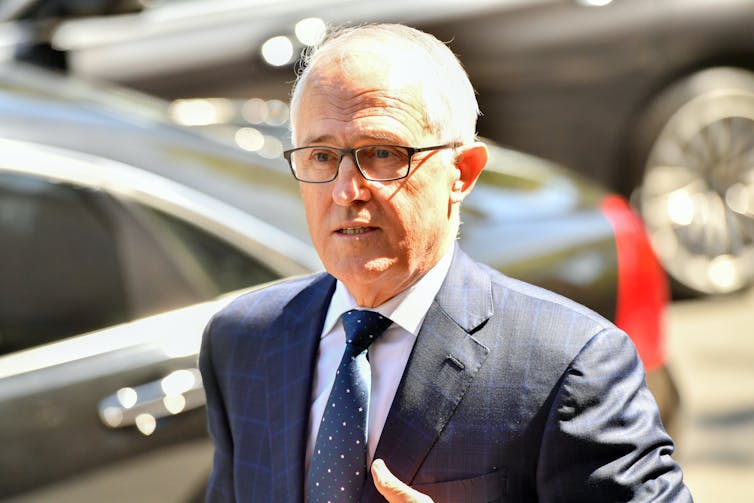What's in the 'public interest'? Why the ABC is right to cover allegations of inappropriate ministerial conduct
- Written by Alexandra Wake, Program Manager, Journalism, RMIT University
Immediately after ABC’s Four Corners aired allegations about the conduct of government ministers Alan Tudge and Christian Porter, questions were raised about whether the report was in the “public interest”.
The Australian’s editor-at-large, Paul Kelly, said on Q&A that Porter was “trashed” by the program, adding
What the ABC has done tonight is that it’s crashed through some media barriers and created new media barriers. How far do we go in terms of our definition of the public interest?
We need to be very careful about the damage we do to people’s reputations here and ask ourselves is that an accurate portrait or was it a caricature?
Asked about the story in a Senate committee before the story aired, ABC managing director David Anderson defended it as “absolutely” being in the public interest.
It goes to conduct of ministers, ministers of the Crown, to be held to the highest standard in society. That’s the nature of the story.
Porter has denied the claims made against against him. He had earlier discussed considering legal options against the ABC, but played that down in an interview yesterday.
Read more: Why a code of conduct may not be enough to change the boys' club culture in the Liberal Party
Even tawdry stories are in the public interest
Despite Porter’s protestations, the ABC clearly had an obligation to air a story that contained allegations of ministerial misconduct (however tawdry).
News reports about politicians, sex and booze are as old as time and have brought shame to many a politician, from the former Deputy Prime Minister Barnaby Joyce to Deputy Labor Leader Gareth Evans and the UK Secretary of War John Profumo.
The one clear duty of journalism is to hold those in power to account, and that appears to have been lost on those members of government as they reportedly attempted to pressure the ABC, its managers and journalists, over the broadcast.
 Barnaby Joyce became embroiled in a scandal over his affair with his former media adviser.
Lukas Coch/AAP
Barnaby Joyce became embroiled in a scandal over his affair with his former media adviser.
Lukas Coch/AAP
Standards for those in government
Many ethical issues arise from the broadcast, the attempt to pressure the ABC and the legal threats that have followed.
Even before the program had made it to air, the ABC’s management found themselves under attack, with an excruciating Senate Estimates Committee hearing a couple of hours before the broadcast.
But it certainly wasn’t a quick piece of “gotcha” journalism with a blurry photo at its centre. The Four Corners team have an exacting process to their work. For this story, the ABC said they interviewed 200 people over several months. They also contextualised the story beyond the two central politicians to raise real concerns about the place and safety of women who work in Parliament House.
Anderson also said the allegations had been thoroughly sourced and checked legally. Those named in the story were given “ample” opportunity to respond.
Moreover, while the so-called “bonk ban” on ministers having sexual relations with their staff was only introduced by Prime Minister Malcolom Turnbull in 2018, Cabinet ministers have had rules governing their behaviour since John Howard first established a public ministerial code in 1996.
 Turnbull says he warned Porter about ‘unacceptable’ behaviour with a young female staffer.
Mick Tsikas/AAP
Turnbull says he warned Porter about ‘unacceptable’ behaviour with a young female staffer.
Mick Tsikas/AAP
Members of the Morrison Cabinet now sign up to a code of conduct which says they will “act with integrity” and be “open to public scrutiny and explanation”.
Specifically, there is no grey area in these ministerial standards on the point of sexual relationships with staff:
2.24. Ministers must not engage in sexual relations with their staff. Doing so will constitute a breach of this code.
Prime Minister Scott Morrison pointedly said this week that neither Porter nor Tudge were in breach of his code of conduct.
But allegations of sexual misconduct and power imbalances, even historic ones, are still clearly a cause for community concern, and cannot not be ignored by journalists or political leaders. Such matters are no longer private affairs between consenting adults.
Just ask the complainants at AMP, the former CEO of Seven in WA, or even former US president Bill Clinton.
Read more: AMP doesn’t just have a women problem. It has an everyone problem
Action should be taken
Regardless of the salacious allegations made on the Four Corners program, there is also a point to be made about the hypocrisy of politicians who market themselves as having “family values” and demand others follow “Australian values”.
Certainly, it is not edifying to watch details of alleged impropriety by politicians broadcast on television, and it’s uncomfortable that such stories inevitably impact those who are innocently caught up in the furore (particularly partners and children).
Tudge did issue a statement saying he regretted his actions “and the hurt it has caused my family”.
But with this story, Four Corners has not only produced a program that has interest from the public, it is also in the public’s interest.
There are many questions to be answered from the ministers named in the story and also those who knew about the allegations and did nothing (or even worse, promoted them).
The real outcome of this program should not be a defamation case, but rather action from Morrison. Questions over ministerial conduct are important. This is certainly a matter of public interest.
Authors: Alexandra Wake, Program Manager, Journalism, RMIT University





